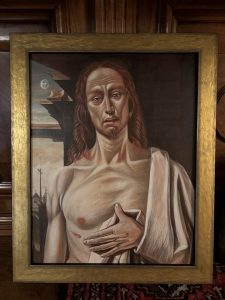What is career writing? by D.B. Stewart
Mere weeks before he died, Dr. Oliver Sacks (2015) wrote a short memoir entitled
Gratitude. Sacks reflected on working with the chronic care patients who inspired his book
Awakenings (and the award-winning film): “I was fascinated by my patients there, cared for them deeply, and felt something of a mission to tell their stories…I had discovered my vocation…almost unconsciously, I became a storyteller” (p.39).
Through doctoring, through writing, through reflecting, Sacks discovered and uncovered his vocation. The purpose of career writing is the same and creates the right conditions for self-discovery.
In Narratives at Work: the development of career identity, Meijers and Lengelle (2012), speak of the “career story [which] helps a person define who s/he is and how s/he should act within a career context” (p.157). Meijers and Lengelle assert that this career story supports one’s ability to “navigate” (p.158) through career impasses. An apt metaphor, navigation implies we need strategies to steer the boats of our careers in ways to control the journey, even if we might not be fully aware of the boat’s destination. Meijers and Lengelle found that more “conscious” (p.158) awareness redefines career challenges as “opportunities instead of setbacks and/or failures” (p.158) and thus workers determine “how the self of yesterday became the self of today and will become the self of tomorrow” (Savickas, p.158). Oliver Sacks noted this new consciousness and how his “something of a mission” revealed his true “vocation,”—certainly a career word heavy with personal meaning.
For this new consciousness to occur, workers benefit from career writing. Meijers and Lengelle speak of “constructing” a career identity through encouraging and enhancing:
- reflective abilities: “a practice of articulating, performing and negotiating identity positions in narrating career experiences” (p.159).
- cognitive change: “research shows that direct introspective access to higher-order cognitive processes is limited” (p.159).
They also talk about emotions and how they inform but also cloud our perceptions. Because we humans tend to default to emotional reactions, “pre-programmed ways of thinking… [and] a tendency to get stuck in already existing stories” (p.159), we need safe opportunities to explore fixed mindsets, confirmation bias, and other forms of blocked thinking “in a more intentional way” (p.160) to break through stigma and develop meaningful insights.
But how? Through dialogue. Using a “constructionist approach” (p.159), Meijers and Lengelle propose that we do not create a career identity alone: “identity manifests itself in discourse” (p. 159). Essentially, we must have a guided conversation with ourselves. This is precisely what writing can teach us. The conversation begins by examining a difficult-to-understand “boundary experience (a life-altering situation or event)” (p.161) such as being demoted. To move forward personally and professionally, this “first story” (p.163) must be examined through “dialogical learning” (p.169) whereby, metacognitively, one becomes an observer of one’s own boundary experience. To gain insight into one’s first story and develop a new one, Meijers and Lengelle describe an active process as “sensing, sifting, focusing, and understanding” (p.165) which facilitates awareness of conscious and unconscious underlying factors (such as self-sabotaging behaviours for example).
In doing Career Writing, Lengelle et al. (2014), recommend “creative, expressive, and reflective/reflexive writing” (p.76) as dialogical learning methods so a more meaningful “second story” (p.163) emerges. This story often represents a transformative acceptance of that negative ‘first story.’ Essentially, the tacit becomes explicit and the career can now “navigate” forward past “rough seas” with a newfound perspective.
As Dr. Sacks reflected on his patients, he discerned more than a cure: he healed
himself as well. Meaningful work is essential to career happiness. Like Dr. Sacks we may not know the ultimate destination for our career (or life), but we can use reflective and reflexive career writing to reassess career experiences and journey forward with a new or renewed growth mindset.
References:
Meijers, F. & Lengelle, R. (2012). Narratives at work: The development of a career identity. British Journal of Guidance and Counselling, 40, 157-177.
Sacks, O. (2015). Gratitude. Knopf Canada.

